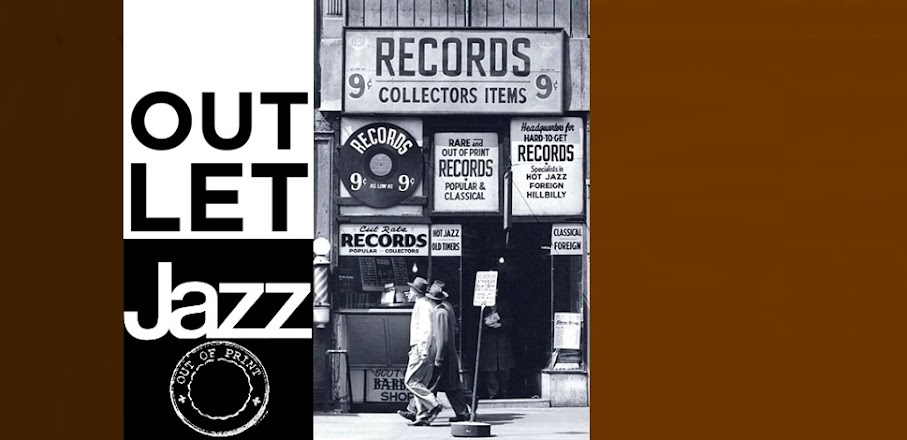Manny Albam
The Jazz Workshop
This is Manny’s Album.
For the past few years the figure of Emmanuel Albam has lurked behind the success story of a number of great jazz figures. As a dance band arranger, he spent five years putting talented pen to paper for Charlie Spivak; as a jazz writer he contributed to the libraries of Count Basie, Woody Herman and Stan Kenton. In the area of combo writing —the kind of work for which he expresses a special predilection— he has written for recording dates led by some of the same musicians who play
under his direction in this, his own first session.
Manny Albam was born June 24, 1922, in Samana, in the Dominican Republic, where his mother was visiting. While still in his teens, he made an early big-time debut playing saxophone in Bob Chester’s band. During the next few years, before and after his 1945-6 Army service, he built up a jazz reputation, playing baritone sax and arranging, in big bands led by Georgie Auld, Charlie Barnet and Charlie Ventura.
Five years ago Manny virtually stopped playing, since by this time the calls for his contributions as an arranger had necessitated complete concentration on writing.
Manny feels that the influence of Duke Ellington’s approach to small-band recordings, such as the dates by Duke’s Johnny Hodges contingent, had some bearing on his feeling about the present album.
"I never forget", he says, "that in this kind of jazz the soloists are at least as important as the writing, if not more important. As for the type of music we feature here, I have what might be called a traditional approach to the idea of swinging. I wanted to use some of my favorite soloists in a compatible group, and incidentally,
in order to let the horns be heard to full advantage, I didn’t use any piano. A piano can tend to make a group sound smaller, by covering up some of the figures you write, or interfering with the horns. Besides, Osie Johnson and Milt Hinton were on all three sessions for this album, and what rhythm section could be more complete?".
Each of the sessions features an octet with slightly varying personnel: two trumpets, two trombones, two saxophones and two rhythm. I suspect that you who listen to it will be no less happy about Albam’s Album than was Manny himself, or Jack Lewis, who produced it, or this writer, who had the larcenous assignment of being hired to hear it. *Leonard Feather (liner notes)*
Manny Albam’s contribution to Victor’s Jazz Workshop series, while not as adventurous as a workshop title generally connotes, is musically the best yet released in the project. Each session was made with an octet of two trumpets, two trombones, two saxophones, and two rhythm (no piano). The musicians are Nick Travis, Jimmy Nottingham, Al Cohn, Bob Brookmeyer, Sol Schlinger, Milt Hinton, Billy Byers, Hal McKusick, Urbie Green, Joe Newman, and Osie Johnson. Everyone of them is, for the most part, at the wailing top of his form so the solos are of consistent crispness and invention. Manny did all the writing, and it’s all lubricated for the kind of interweaving swinging performances that build inexorably to generally satisfying climaxes.
Albam has written for Spivak, Basie, Herman, Kenton, and many recent Victor small combo dates. He also has played baritone and arranged for Auld, Barnet, and Ventura. His first LP under his own name is mainstream small combo jazz with roots in Basie and the Ellington small units. It is a firm mixture of good taste and deceptive simplicity in the writing and charged soloing that takes advantage of the relaxing mobiles that serve as scaffolding. Very good engineering and helpful notes by Leonard Feather. I’d like to hear Manny’s writing at longer length than was allowed him here. *Nat Hentoff, Down Beat, June 13, 1956*
Side 1
1 - Anything Goes
(Cole Porter)
2 - Headstrong
(Manny Albam)
3 - Black Bottom
(DeSylva, Brown, Henderson)
4 - The Changing Scene
(Manny Albam)
5 - The Turning Point
(Manny Albam)
6 - Charmaine
(Pollack, Rapee)
Side 2
7 - Diga Diga Doo
(Jimmie McHugh, Dorothy Fields)
8 - Royal Garden Blues
(Clarence & Spencer Williams)
9 - Swingin' On A Star
(James Van Heusen, Johnny Burke)
10 - Intermezzo
(Manny Albam)
11 - Ferris Wheel
(Manny Albam)
12 - Urbanity
(Manny Albam)
#1, #3, #10, #11:
Manny Albam (leader); Jimmy Nottingham, Nick Travis (trumpets); Billy Byers (trombone); Bob Brookmeyer (valve trombone); Al Cohn (tenor sax); Sol Schlinger (baritone sax); Milt Hinton (bass); Osie Johnson (drums).
Recorded in New York City, December 24, 1955.
#2, #7, #9, #12:
Manny Albam (leader); Joe Newman, Thad Jones (trumpets); Urbie Green (trombone); Bob Brookmeyer (valve trombone); Hal McKusick (alto sax); Sol Schlinger (baritone sax); Milt Hinton (bass); Osie Johnson (drums).
Recorded in New York City, December 29, 1955.
#4, #5, #6, #8:
Manny Albam (leader); Jimmy Nottingham, Nick Travis (trumpets); Urbie Green, Billy Byers (trombones); Al Cohn (tenor sax); Hal McKusick (alto sax); Milt Hinton (bass); Osie Johnson (drums).
Recorded in New York City, December 31, 1955.


Muchas gracias,
ReplyDelete